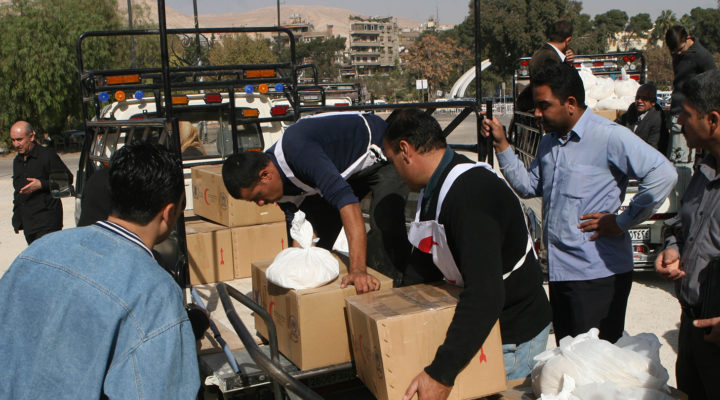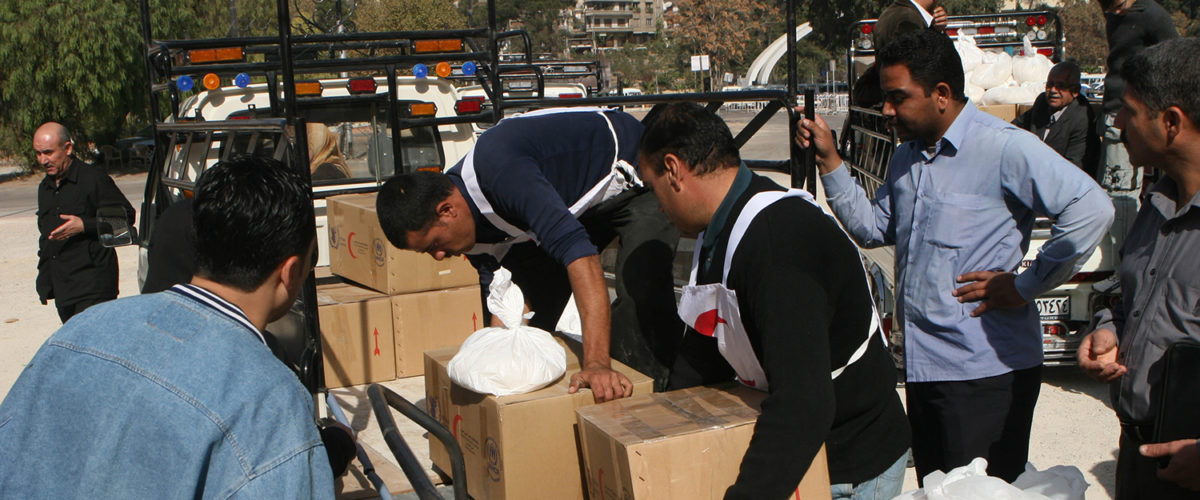After President Trump’s executive orders, the future of U.S. refugee resettlement programs is uncertain. This is the second in a series on what that might mean for Syrians fleeing their war-torn country. Tomorrow: Refugee resettlement programs are endangered, thanks to Trump. How do they currently operate? Yesterday: For Syrian refugees, recruiter’s call signaled time to flee
Moved in 2015 by the dramatic picture of 2-year-old Alan Kurdi’s body washed ashore in Turkey, Dean Clifford wondered, “What can we do in the face of such pain and anguish?”
Her answer came in short order.
Right after she saw the picture, Clifford spoke to an elementary school faculty in Winston-Salem, N.C. A young teacher greeted her excitedly, because Clifford had mentioned that she is a member of Knollwood Baptist Church.
The teacher told Clifford that volunteers from Knollwood had resettled her family as refugees from Cambodia in the 1970s. The grateful teacher was “positively effusive in her thanks” Clifford said.
Hours later, Clifford addressed her Wednesday night fellowship meeting at church, referred to the refugee family, and told her fellow congregants, “It’s time for us to do it again.”
Volunteers like Clifford and her team are the arteries from the heart of refugee resettlement. Without them, the nine agencies the U.S. government engages to do the legwork of resettlement would be limbless.
A simple suggestion connected the dots for Anna Rubin to lead Ardmore Baptist Church to sponsor two refugee families.
Ardmore pastor Don Gordon suggested to his deacon chair in 2015 that the church consider sponsoring a refugee family. Within weeks, Rubin had arranged a presentation by Christian resettlement agency World Relief. The only real resistance among deacons stemmed from low confidence in the refugee vetting process. Could the church be sure any family it helped posed no terrorist threat?
“The families are coming regardless,” Rubin said. She assured the church she felt not the least insecurity and vocal resistance faded.
Ardmore settled a Christian family from Ethiopia and the five-member Ghazali family from Syria. The Ghazalis fled when a recruiter demanded that Nasur Al Ghazali re-enlist in the army, eight years after he had fulfilled his two-year obligation.
After the logistics of housing, medical checkups, dental exams, school enrollments, house furnishing and job searches — all while dealing with translators — the residual effect for most volunteers is that they become not just “sponsors” but friends.
Becoming vulnerable to a family that doesn’t speak your language and is not familiar with your world, a family of an ethnic identity that politicians tell you to fear, is testimony to a faith that thrives far beyond the pulpit and pew.
It can even be an action that forges links between faiths.
Phyllis Boozer of Wilton (Conn.) Baptist Church chaired a common effort among eight Christian churches, a synagogue and the local Islamic center to resettle a widowed Syrian mother and her five children who walked 12 days to reach a refugee camp in Jordan.
“Knowing someone, and understanding the nature of the individual and seeing them as a person and not as a Syrian, Russian, Lithuanian or whatever ethnicity they are makes us have less desire to wipe them off the face of the earth just because they don’t believe like I do,“ said Boozer. She is also the coordinator for the Cooperative Baptist Fellowship of the Northeast, a band of a dozen churches and many other individuals.
“Knowing someone, and understanding the nature of the individual and seeing them as a person and not as a Syrian, Russian, Lithuanian or whatever ethnicity they are makes us have less desire to wipe them off the face of the earth just because they don’t believe like I do.“
“A benefit to us as Christians or human beings is being a witness to their pain,” Rubin said. “And seeing how we can’t fix it, but we can be with them in it. And learning that being there is enough. That is my biggest lesson.”
“The most positive surprise for me has to do with the relationships that formed,” said Clifford, 75. “We really are friends. If the children see me out somewhere they run to throw their arms around me. The family is totally hospitable and responsive. It’s amazing how they have taken us into their lives and made us their family.
“When one of our team member’s parents died, Aisha and Mohammed showed up at their house to give their respects. They refer to our team members as their sisters, and to me as ‘mother.”
“We’re getting to meet people from around the world that otherwise we would never meet and we get to experience their hospitality and their culture,” Rubin said. “We’ve had a positive relationship that’s been mutually beneficial.
“We’ve shared meals together in their home and in ours. They’ve been very appreciative of everything they’ve done. It’s really been a gift to us to be able to meet them and join them on their journey for this short period. It’s opened our eyes to things we previously didn’t know and hadn’t experienced.”
That’s exactly the globally healing effect of interaction between cultures for which Dina Shehata yearns. A member of the local Annoor Islamic Center, Shehata is a willing volunteer and interpreter for Christian churches resettling refugees. Her family, which immigrated from Egypt, runs a local Italian restaurant.
Christians helping to resettle Muslim refugees is “definitely a great, great step toward really clearing up misconceptions” about each other, Shehata said. “People don’t understand because they just don’t know.
“Once we work together we learn a lot more about each other and that builds a bridge to more understanding in the future,” she said.
Even with a commitment simply to serve, and not to proselytize, the Christian motivation of these volunteers is clear. “The Bible is very clear about welcoming the stranger and refugees,” Clifford said. “As followers of Jesus we are to live by Matthew 25 which calls us to clothe the naked, feed the hungry, care for the sick.
“That is a very clear command for us to love our neighbor. And the story of the good Samaritan defines ‘neighbor’ as anyone who needs help or gives help.”
The chasm narrowing power of being a neighbor is spreading in Winston-Salem. Knollwood has partnered with the local Jewish temple to resettle a family, and is forming another Good Neighbor team for a second joint effort. So a Baptist church, a Jewish synagogue and Muslim mosque are working together to resettle a Muslim family.
“Our contract is done,” said Clifford about their first family. “Our work is not over by any means. I think we’ll want to stand with this family for a long time.”


